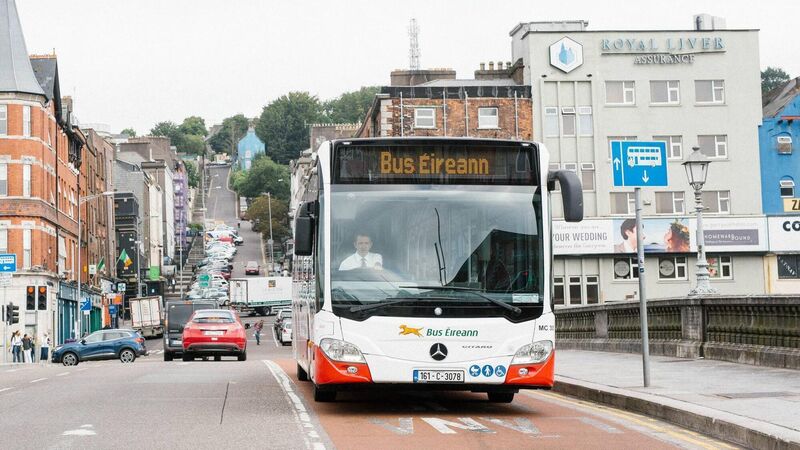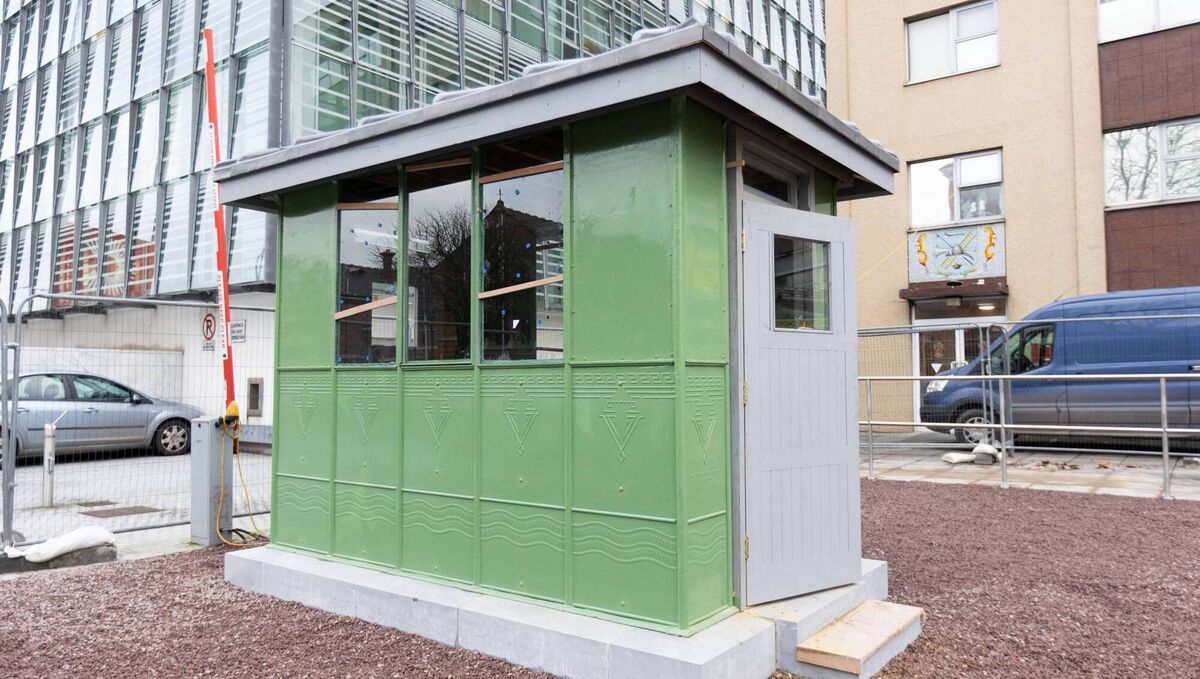Michael Moynihan: ‘Repeated public requests’ can get things done — but not for bus routes

A Bus Éireann bus on St Patrick's Bridge, Cork. Are Transport for Ireland and the National Transport Agency aware of what is going on in Cork?
A snapshot of where we are right now, beginning with the good news.
As reported here by Eoin English recently, “Bus Éireann is set to restore a raft of services it cut from some of Cork city’s busiest high-frequency bus routes last October.” Thumbs up?
Unfortunately, just as soon as Eoin giveth he taketh away again, because he immediately added: “However, it (Bus Éireann) said the 220 Ballincollig to Carrigaline service, the city’s only 24-hour bus route and one of the busiest bus routes in the country, is still undergoing a timetable review to address punctuality and reliability issues.
“It said the reduced timetable introduced on this key route in October will remain operating for the time being, with a new 220 service timetable expected to be in place by late April.”
Just for a bit of context, I note the population of Ballincollig is estimated at over 18,000 people, and Carrigaline’s is much the same. That means a combined population bigger than that of Kilkenny or Ennis, say, or Carlow or Bray, is being served by a timetable for seven months — a stretch of time which includes the Christmas period, incidentally.
Because the universe moves in mysterious ways, my attention was drawn at around the same time to another media outlet’s championing of developments in bus services in Dublin. By developments I mean extra buses — namely the launch of two 24-hour services, E1 and E2, aimed specifically at making travel between the city’s busiest areas quicker and more reliable, as well as radial route 19, intended to offer a viable alternative to some of the capital’s most congested services.
Yes, it is the most tired trope in column-writing to bang the drum about preferential treatment being given to Dublin over other areas of the country, but at times it just seems ... a bit on the nose. Agonising about the possibility of Metro links from the capital to Dublin Airport continues apace, extra bus routes are provided elsewhere, but Cork’s 220 — one of the busiest bus routes in the nation, remember — is operating on a reduced timetable.
Are Transport for Ireland and the National Transport Agency aware of what is going on in Cork? I opened the TFI website and was greeted by news of bus services in Kilkenny, west Clare, and Donegal respectively. The news feed on the site gave information on accessing gigs in the 3Arena and two in St Anne’s Park, Dublin.
When I opened the NTA website its news feed informed me about the bus services in Kilkenny, west Clare, and Donegal mentioned by the TFI.
Fair is fair. These two organisations can’t deliver non-stop news about transport in Cork (don’t all rush with the obvious retort, the non-stop news we get about Somewhere Else).
And part of me applauds the micro-focus: why shouldn’t transport services in the remotest parts of the country be dealt with in detail by national organisations?
Another part of me, though, asks why over 36,000 people in Cork have a worse bus service now than they did six months ago, with a new timetable not expected for another three months at least.
Elsewhere in the city the The Dearest Kiosk In Ireland is in the news again, by which I mean the Fireman’s Rest.
This is a prime example of the kind of mess that most of us forget until we hear about it and then think, ‘Oh, , but there was some movement in recent days.

After months of silence about the spiralling cost of this project, Cork City Council issued a statement about the Fireman’s Rest, saying the work had been undertaken following “repeated public requests”.
To be precise: “Over the decades, repeated public requests to refurbish the Fireman’s Rest were made to Cork City Council by local historians, former fire brigade and CIE workers.”
This is both enlightening and encouraging. It means that if any citizen wants work done in Cork he or she need only make “repeated public requests” to have that work carried out. Park for a moment the slightly defensive tone to the Council’s comments — the undertone of ‘it’s your own fault for asking us’ — and consider the ramifications of this revelation: ask and you shall receive.
Or witness vast sums spent on refurbishment, at least.
According to the statement, the refurbishment works “...involved the careful, skilled dismantling of the existing structure, transport for stripping, blasting and casting of new panels, extensive repair of cracked cast iron panels, working with wrought iron, lead roofing and stonemasonry to the new cut limestone plinth to replicate the initial scheme.”
Even the bare minimum level of maintenance and care would surely have obviated the need for at least some of the remedial work. It’s a little difficult to swallow the “extensive repair” narrative when it comes from the same organisation that left the Fireman’s Rest mouldering in a yard for a couple of decades.
Saying the restoration would serve to recognise the role played by the Fire Brigade in protecting the people for over one hundred years is also something of a low blow. There’s a subliminal message involved here along the lines of: You’re critical of the costs? You’re against the renovation? Are you against the Fire Brigade as well?
This is where the Fireman’s Rest and the 220 come together. Eoin’s story about the bus route included a comment from Bus Éireann on services in Cork: “Bus Éireann is committed to growing and improving public transport for the people of Cork and will continue to work with all stakeholders to secure additional bus prioritisation measures which are essential to support the delivery of reliable and punctual public transport services . . .”
Eventually they tend to mass together in a gloop which generates its own gravity.
However, contradicting the known facts needs to be pointed out. Just as Cork City Council trumpets the “careful” work done on a structure which it failed to take care of for twenty years, Bus Éireann is telling us it is “committed to growing and improving public transport” even as one of the busiest bus routes in Ireland remains operating on a reduced schedule. These boilerplate assertions — bland, generalised — do a lot of damage by trying to normalise situations which are deeply unsatisfactory. Correction: by telling us one thing when we can see for ourselves that the opposite is the case.
As they taught us long ago in the Mon primary, chuirfeadh sé an dubh ina bhán ort.
But only if you accept it.






